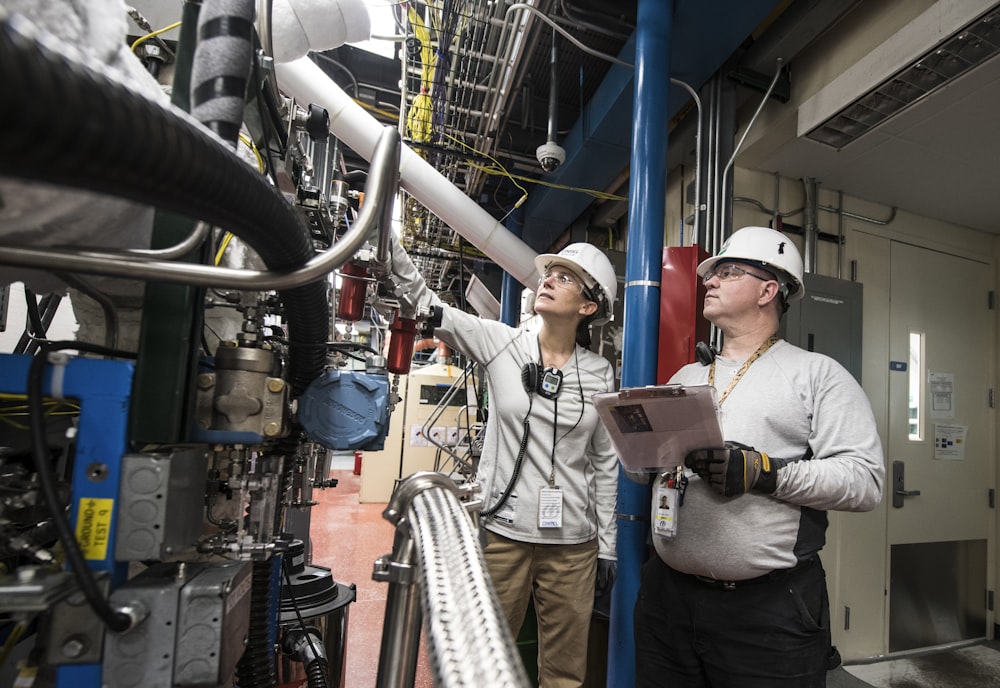As you may be aware, industrial buyers looking to establish a long-term relationship with your company may conduct extensive research on you. They may be visiting your facility, reviewing your financial records, speaking with customers, and much more. Today's buyers prefer to evaluate suppliers anonymously first, then create a shortlist of potential partners before contacting them. Today take a look at how to get onto these industrial buyer’s shortlists.
Buyers Look At Your:
Associations & Certifications
Displaying your trade association membership helps to legitimize your company and shows that you're up to date on the best practices. Having the Canadian Manufacturers & Exporters (CME) logo on your website, would put buyers at ease and begin to build their confidence in your knowledge. Also, it's a chance for you to network with fellow businesses in your industry through being a part of an association. Also take a glance at what your competitors' associations are because your potential buyers compare them. Additionally, supplier diversity programs such as WBE which acorn30 is a member of as a woman led company would help publicity & socially.
Additionally, Buyers would like to know which industry quality certifications you have earned, comparable to what they want to know about current associations. Most large buyers, in fact, demand that their suppliers maintain a certain level of certification and follow a strict quality control procedure. Buyers should be able to view your certifications online. Similar to how customers would want to see certifications on the walls when they come into your shop.
Delivery Performance
Future customers will demand confirmation of this, as on-time delivery is frequently a buyer's top critical performance indicator (KPI). Many buyers will check this after shortlisting and contacting you by requesting to talk with your current customers, but if you have a great on-time track record with zero refunds and little downtime, and can offer those references, highlight it right up front on your website. Share case studies of previous accomplishments and your on-time delivery rate. You may even prepare for being shortlisted by contacting previous clients ahead of time so you can provide references if needed.
Equipment List
When consumers are first evaluating you, one of the most fundamental questions they want to know is whether or not you can execute the task they need done. Provide a thorough equipment list to truly demonstrate the entire spectrum of your skills, in addition to stating them. On your shop floor, what machinery do you have? How many of each are there? What types of materials and sizes can they work with? What kind of throughput can they provide? What kind of tolerances do they have? Be as precise as possible, as this list will go a long way toward building your reputation and assisting buyers in knowing exactly what you can do for them, and setting you apart from your competitors.
Facility Information
Buyers interested in long-term relationships will usually want to visit your facilities onsite at some point, but giving them images and videos while they're still anonymously assessing you online may give you a significant edge. They'll want to know things like if your manufacturing facilities are up to date and well-maintained. Is the layout of your factory ideal for productivity? Using store videos, pictures, and virtual tours to answer these questions may help you stand out early in the evaluation process.
Product Information
Today's buyers are well-informed about what they want, and they'll often research and assess items before contacting you. That's why having a website with an up-to-date online catalogue is critical to your business's success. You want to make sure all of your product information is online. Is your whole catalogue online, and is it possible to search for it? Is it complete with all product information? Do you provide custom services? Can you provide examples of those services? Make sure to include spec-sheets, and brochures in your online catalogue as it is appealing to the buyer.
Quantity/Production Capacity
Buyers will want to know how much of certain and specific items you can manufacture once they know what you can make. What is your capacity for production? What quantity can you produce at full capacity? How would you deal with inevitable missing parts? What about maintenance? Do you have any order minimums and/or maximums? How will certain situations affect costs? Buyers will want to see previous high-volume and low-volume projects you've worked on. Confirming this information up front saves time talking to individuals who aren't a good fit for what you're selling.
Getting on the industry buyers shortlist does not happen immediately, however through following the highlighted steps above, it will make it that much easier for you. It is a goal that every manufacturing business should strive for.



